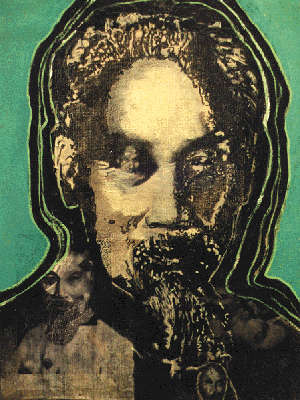|
HO CHI MINH C. David Thomas
Why Ho Chi Minh ? "Ho Chi Minh was one of the extraordinary figures of this era–part Gandhi, part Lenin, all Vietnamese." This quote begins the second chapter of David Halberstam's book titled HO. This modest 118 page book written in 1971, is the only one of two biographies published in the United States on this extraordinary leader. The other was written by Charled Fenn and is no longer in print. Why? Is it possible to deny the importance of his leadership in looking at 20th century world history? While there are hundreds of books, films, plays, seminars, articles, and television specials about nearly every aspect of the American War in Vietnam and the U.S. leaders who were in power at the time, why only two modest sketchs of the man who led his country to defeat not only the Americans but also the French and in doing so changed the course of world history? When his name is mentioned in the U.S., Ho is usually referred to simply as the communist leader of North Vietnam. Does this accurately reflect the man who lived in France, England, and the United States and used the U.S. Declaration of Independence in writing the Vietnamese Declaration of Independence? Are we afraid to take a close look at this man? Is he of no interest in this country? Why? Can we understand Ho and still justify our policy in Vietnam, beginning in 1945, when President Truman ignored the letters sent to him by Ho asking for our support to keep his country free from the French colonists? Ho and the Vietminh had been our allies during WW II. We trained and equipped them to assist our fliers shot down over China and when the war ended we turned our backs on them. Why? Was this simply a result of the Cold War? These are only a few of the many issues and questions often overlooked in studying the U.S. Vietnam relationship. Are they overlooked because they are likely to give us answers we are not yet willing to accept? Answers which are too painful for many of us to believe? Were we on the wrong side? If we were, how could that have happened? If we weren't, why did the communists win? Could they have been on the right side? by C. David Thomas and Charles Fenn
|
